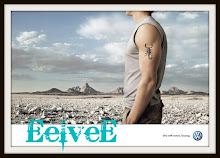Cameras, lights, sound, transport and insurance.
cameras
The equipment you will need (or can get hold of) will vary tremendously depending on your budget.
Digital equipment is far more widely available than traditional 16mm and 35mm film cameras and there are a large number of local organisations that own cameras that can be hired – sometimes even borrowed – by members of the public. Hook into your local filmmaking community and you may be amazed by what is available for a very low cost and sometimes even for free.
There’s a myriad of different cameras available, depending on which format you are shooting. Besides the basic camera, you might need a set of lenses, a zoom, a head, a tripod, and if you are shooting on film, maybe a video assist (allowing you to see what you have just shot, as film needs to be processed before it can be watched).
For film cameras, you will definitely need to talk to a camera hire company about what they have available. If you have a camera person who uses them for paid work, then it will be much easier to get a good deal. If not, phone them up for a chat and explain who you are and what you need. They are usually a very friendly crowd and happy to help if they can.

There are a lot of camera hiring companies nationwide, so it is worthwhile getting your hands on The Knowledge (see recommended reading), but see the right-hand column for a selection of the most well-known.
lights
This is an incredibly important part of the filmmaking process, and one that you will need to invest some time in to make sure that the shoot is not wasted. Much of your decision-making will be based on whether you are shooting interiors or exteriors. An experienced camera person comes in handy for lighting tips, so get advice and experiment (see right-hand column for professional lighting hire companies).
If you don’t have an experienced lighting person to hand, the best guide on the web is: www.exposure.co.uk/eejit/light
sound
This is a vital area and one that often gets overlooked by first-time filmmakers. The most important thing that you have to remember is that you must record the dialogue well, everything else can be cheated in post-production, but getting actors back in to re-record their dialogue is annoying. It can be very expensive and should be avoided.
Once the dialogue has been secured, the secondary concern is to record the atmosphere of the room so that it can be used as background in post-production mixing. This is referred to as the ‘wild track’ by the sound mixer. There will need to be a moment of quiet on set while the sound mixer records the sound of the room.
microphone
The ideal is a good shotgun mike. These can be pricey, but it’s a good idea to have more than just the microphone on the camera.
mixers and DAT records
A mixer is a box that has different tracks from one to four. Its job is to control the sound levels. You can feed your microphone straight into your camera, but you will have very little control over the sound levels, so it is better if your microphone feeds into a mixer first. If you do record straight into the camera, be careful, as certain cameras have been known to distort sound. Even better is record onto a separate DAT machine. This is the ideal, as it gives you a better quality and will be more flexible in post-production.
transport
This can be a tricky one on low funds. If you have managed to blag some kit then you will need to get it around. Sometimes the facilities houses will rent you a truck, but that can be just as pricey as going to your local van rental place. Talk to whoever you are hiring your kit from and see if they have any suggestions. If all else fails, find a mate with a very big car and plan to do lots of journeys. Bear in mind that if you do hire a van and plan to leave any kit in it then, for insurance purposes, it will need to be in a 24-hour lock-up (see below).
insurance
Insurance is an essential part of filmmaking. The basic insurance that you need will cover the health and safety of your cast and crew. If you are hiring any equipment, you will need to know what it is worth and get it insured accordingly. There are many other areas that you can look to have insured. For example, bad weather insurance covers you if you have to reshoot as a result of Mother Nature, but this is beyond most short film budgets.
The UK Film Council website has good background information on insurance: www.ukfilmcouncil.org.uk/filmingUK/location/insurance


No comments:
Post a Comment